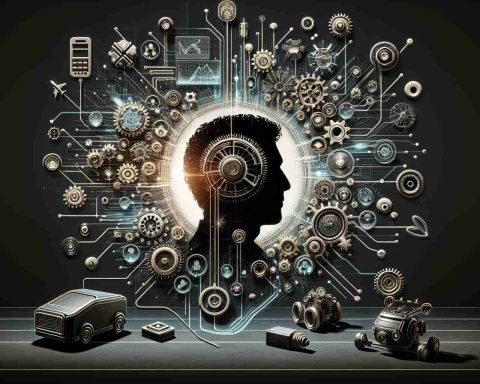Artificial Intelligence (AI) has quietly permeated various aspects of our lives in recent years, and the recruitment sector is no exception. The integration of AI in recruitment is reshaping how companies attract, select, and hire talent, promising a more efficient, unbiased, and strategic process. However, alongside its benefits, this technological revolution raises crucial questions about ethics, privacy, and the very nature of human work.
The allure of AI in recruitment lies in its ability to automate time-consuming and repetitive tasks, such as resume screening, allowing recruiters to focus on more strategic and human elements of the hiring process. AI tools can swiftly analyze thousands of resumes, identifying candidates that best match the job requirements based on keywords and data patterns. This not only accelerates the process but also cuts down costs associated with manual recruitment.
Nevertheless, the introduction of AI in recruitment is not without challenges and concerns. One major criticism pertains to transparency. AI algorithms are often deemed as “black boxes,” where the decision-making process is not visible or understandable to humans. This lack of transparency can result in candidates being rejected without a clear explanation, leading to frustration and mistrust in the system.
Moreover, another significant concern revolves around data privacy. The use of AI in recruitment entails the collection and analysis of large volumes of personal data, prompting questions about how this information is stored, safeguarded, and utilized. Companies must ensure they comply with data protection regulations and take necessary measures to preserve candidates’ privacy.
Additionally, there is a risk of perpetuating existing biases if the data used to train AI algorithms contains implicit prejudices. It is essential for companies to conduct regular audits on their AI systems and provide ongoing training to ensure that the algorithms align with values of fairness and inclusivity.
Finally, there is the pivotal issue of the impact on the job market. With the automation of many recruitment tasks, concerns arise regarding the potential obsolescence of human recruiters. However, it is crucial to remember that AI is a tool meant to enhance, not replace, human capacity. Emotional intelligence, intuition, and the ability to comprehend complex contexts and cultural nuances are uniquely human qualities that AI cannot yet replicate.
In conclusion, the integration of Artificial Intelligence in recruitment represents a paradigm shift with clear benefits and significant challenges. Companies that strike a balance between leveraging technology effectively and upholding transparency, fairness, and data protection will be better positioned to attract and retain top talent. As we navigate this new era, it is imperative to maintain an open dialogue about the ethical and societal impacts of AI, ensuring that its development and implementation are guided by principles of justice and accountability.
The Rise of Artificial Intelligence in Recruitment: Delving Deeper into the Unexplored Realms
As Artificial Intelligence (AI) continues to reshape the recruitment landscape, new dimensions of efficiency and ethical dilemmas unfold, prompting critical questions and sparking debates. Let’s delve into some unexplored facets of AI in recruitment and address the most pressing matters at hand.
Key Questions and Answers:
1. How can companies ensure accountability in AI-driven recruitment processes?
Companies must establish clear protocols for AI decision-making, including regular audits, algorithm explainability, and human oversight to ensure fairness and mitigate biases.
2. What are the potential risks associated with over-reliance on AI in recruitment?
Over-reliance on AI may lead to the devaluation of human judgment, the escalation of biases ingrained in the data, and the erosion of candidate trust due to opaque decision-making processes.
Key Challenges and Controversies:
1. The Ethics of AI:
Balancing efficiency with ethical considerations poses a significant challenge, as the use of AI introduces complexities related to fairness, privacy, and accountability in recruitment practices.
2. Data Privacy Concerns:
The collection and utilization of vast amounts of personal data raise concerns about data protection, security breaches, and the ethical implications of leveraging candidates’ information without explicit consent.
Advantages and Disadvantages:
Advantages:
– Streamlined recruitment processes, enhancing speed and accuracy.
– Reduction of bias through objective data analysis.
– Cost-efficiency and resource optimization for hiring teams.
Disadvantages:
– Lack of transparency in AI decision-making.
– Potential reinforcement of biases present in historical data.
– Threat of displacing human recruiters and devaluing interpersonal skills in hiring.
When navigating the realm of AI in recruitment, companies must strike a delicate balance between harnessing its power for efficiency gains while safeguarding ethical standards, transparency, and data privacy.
For further insights on AI in the recruitment sector, you may explore Forbes for expert analyses and industry updates.
By fostering a culture of ethical AI deployment and continuous dialogue on its societal implications, organizations can pave the way for a future where technology complements human capabilities, rather than overshadowing them in the recruitment domain.

















